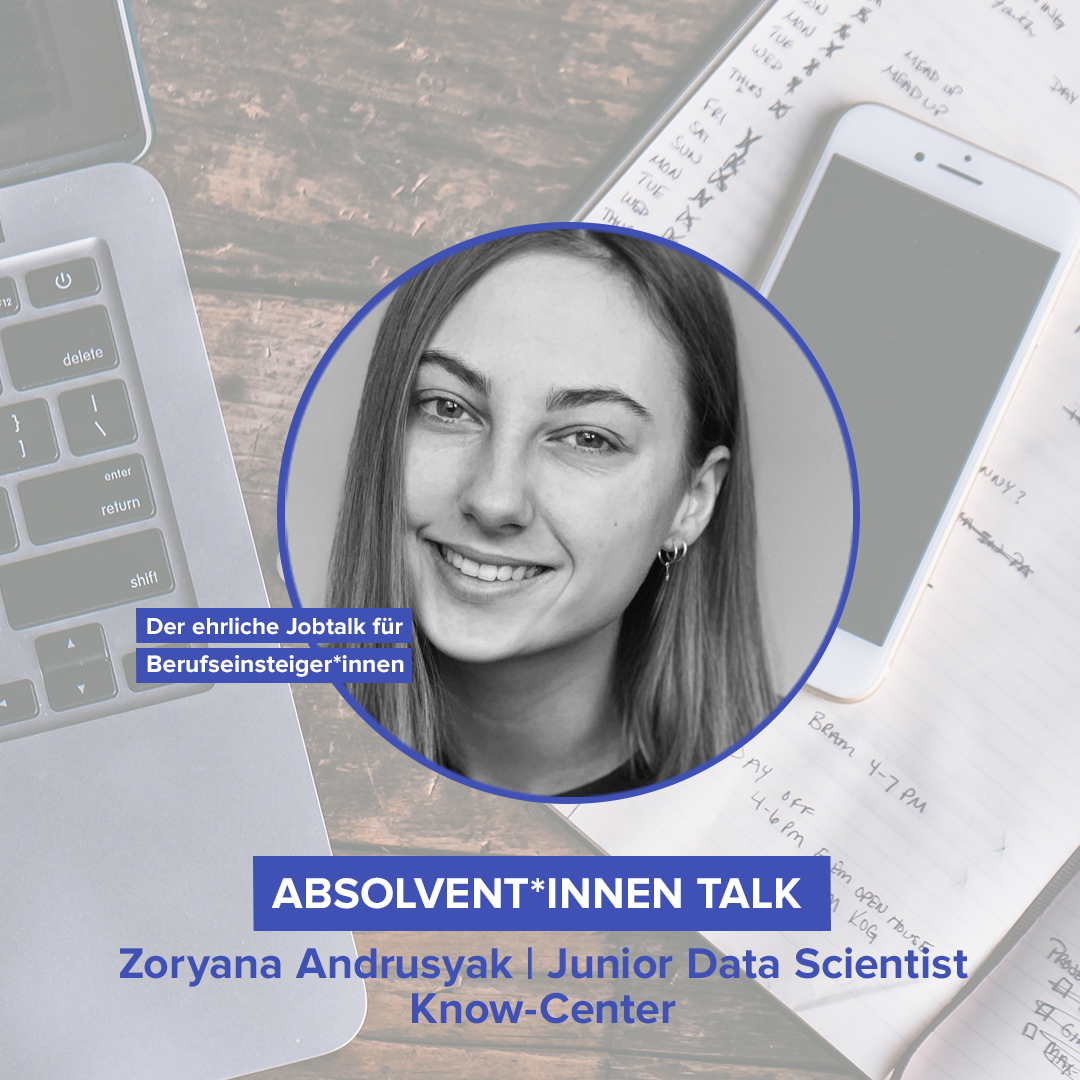Detection of geological bodies on the surface of Mars is like being part of a science fiction novel!
Moving from Ukraine to Austria to start working as a Junior Data Scientist. Find out how it is to work in the field of planetary science with machine learning tools and which knowledge is useful when working with AI.
Hi, I am Zoryana Andrusyak and I'll tell you how my career start was after finishing my studies.
What you need to know about me
-
Studies: Bachelor
Bachelor at the faculty of Applied Mathematics and Informatics
-
Graduation year:
2020
-
University
Ivan Franko National University of Lviv (Ukraine). But discovered Data Science in University of Turku (Finland) during my exchange semester.
-
Job title on my current business card:
Junior Data Scientist
My work day: A little insight
How I became a Junior Data Scientist:
I became fascinated with Data Science after a Data Analysis and Knowledge Discovery course at the University of Turku, Finland. Then I started developing my expertise in Natural Language Processing. After my exchange semester I applied for full time internship at Know-Center GmbH. For the duration of 3 month I worked on two projects. One focused on text classification with NLP tools and another on modeling technology lifycycle. After my internship I came back to Ukraine to finish my final year of bachelor and did my bachelor thesis on the topic of Toxic Comment Classification with the state for the art (for that time) language model BERT.
Now I work as full time Junior Data Scientist at Know-Center. As part of GMAP (Geologic Mapping of Planetary bodies) Science Case I am developing Machine Learning tools for automatic detection of mounds on Mars surface. So I also decided to switch in the direction of Computer Vision and currently not working with NLP at all.
What does a typical week at the office look like?
Due to the lockdown, I am working from the home office like everybody else from my department. I am currently working on one project developing ML pipelines, which involves a lot of research as well. I try out different approaches in all stages of the project - from data preparation to modeling.
Usually, I start at 8:30 and finish around 17. The flexible hours are just great. Sometimes I can take a longer break in the middle of the day and continue the work in the evening or start my workday super early so I am done by lunchtime. With this approach, I became much more productive.
Which professional project do you particularly enjoy looking back to?
I am fascinated with my current project: Detection of geological bodies on the surface of Mars with ML tools - it is like being part of a science fiction novel! I enjoy it a lot as I am very passionate about planetary science. And it's a great feeling to be part of this scientific community!
Which challenges do you face?
The challenging part for me on this project was figuring out the data format. In the GMAP case, I am working with Digital Elevation Models, which are completely different from the regular text or image data inputs. And because this detection problem is coming from the geoscience community there is a very limited amount of tutorials for Python.
What is the main reason you love your job for?
Ability to stay creative and solve problems. There is never a straightforward approach to solving one or another problem, so there are limitless possibilities to experiment.
Where do you see yourself in the future?
I see myself deepening my knowledge in the area of ML and AI. I still have a lot to discover as I just applied for my Master Programme. And more then anything I hope to apply that knowledge to space science!
I was so relieved when I found Data Science, as I did not like the prospects of being a software developer.
Skills you need for this job
How much do graduates have to know when starting their first job?
It is important to know the basics. Then you build your knowledge specifically for different projects on top of your base. It is impossible to learn everything, so the crucial skill is to know how to learn.
Which subjects from your studies are you particularly happy about today?
The knowledge of mathematics turned out to be very useful for AI. I enjoy a great deal figuring out how neural networks operate on a low level and being able to do the calculations, derivatives etc. by myself is very enjoyable.
Which skills do you need a lot but haven't acquired during your studies?
Work-life balance. I tend to take my work very personally. Learning how to separate it helps a lot with my mental wellbeing.
Your opinion about Bachelor/Master/PHD: Which education level is required in your field?
I think it depends on your chosen career path. For sure Bachelor is a must. But in the case of AI and ML, a ton of self-studying is also required, as it is a very rapidly evolving field. I think to work on various projects Bachelor's and a Master's are enough. At the end of the day, it is not about the degrees you have but the number of hours you put into that. Ph.D. is mostly needed if you want to contribute to the development of the field itself. I would very much like to do a Ph.D. at the intersection of AI and Planetary Science.
My advice for you:
Try as many things as possible, because you will never know what subject will stick with you. I was so relieved when I found Data Science, as I didn´t like the prospects of being a software developer. But I learned about it only on my third year! Do as many projects, internships as you can and find what is your thing. Because that won`t feel like work.
🚀Talto Talk with Zoryana

